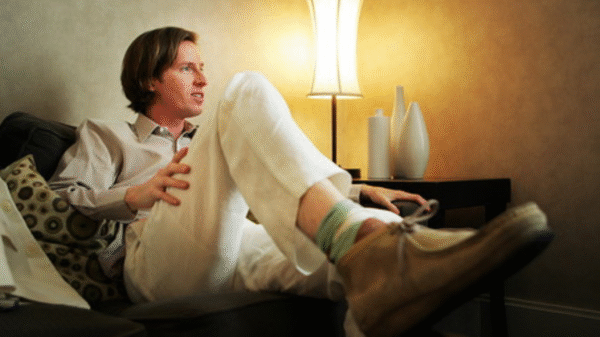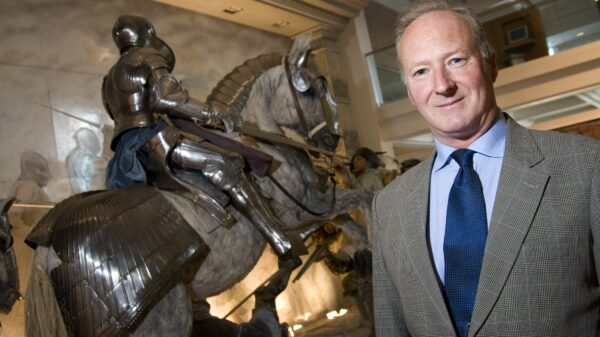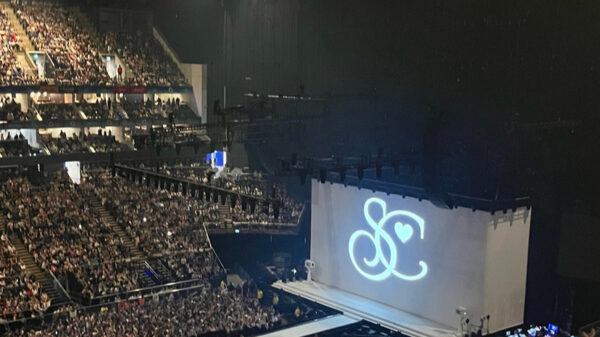Podcast Editor Matthew Seaman on “The World’s A Little Blurry”, a Billie Eilish documentary, providing a look into the young artist’s world.
“The World’s A Little Blurry” is a 2 hour and 20 minute coming-of-age story like no other. Director R. J. Cutler allows us an insight into the beautifully dark world of the young artist Billie Eilish. This raw perspective makes for an emotionally painful watch, where even the cheeriest of moments are undercut by a sombreness. We can’t help but feel sorry for Billie, and the ever-growing pressures that burden her through her trajectory of success.
Initially, I was hesitant to write my response after first watching it several weeks ago, but subsequently felt the only real way for me to process what I had just watched, was to write about it. Please note: this is not a review. I’m not here to tell you whether it is ‘good’ or not. That is out of the question. This is a life-changing work of art – it’s quintessentially ‘Billie’ – and the magic that Cutler captures is effective regardless of your position on the artist or her music. It’s undeniably a ‘must-watch’, whether you believe it to be your ‘thing’ or not.
 Within minutes of the film’s commence, we are transported to one of Billie’s early concerts, an intimate room of fans enjoying a performance of her track “Bored”. I found it a commendable decision to open with a lesser known song, one that encapsulates the dark and sombre tone that we are going to experience for the duration of the film. There is a discernible connection with the fans in the room, its palpability reinforced with a quote from Billie: “They’re not my fans… they’re like part of me”. Those who tuned in to the “Premiere Event” interview on YouTube would have seen a perfect example of this. Billie emotionally recalls her “favourite fan moment”, with a tear in her eye:
Within minutes of the film’s commence, we are transported to one of Billie’s early concerts, an intimate room of fans enjoying a performance of her track “Bored”. I found it a commendable decision to open with a lesser known song, one that encapsulates the dark and sombre tone that we are going to experience for the duration of the film. There is a discernible connection with the fans in the room, its palpability reinforced with a quote from Billie: “They’re not my fans… they’re like part of me”. Those who tuned in to the “Premiere Event” interview on YouTube would have seen a perfect example of this. Billie emotionally recalls her “favourite fan moment”, with a tear in her eye:
“I was in a store… I was just with a couple of my friends. There was this girl across the room… and she looked at me, and I looked at her, and I just smiled at her. She ran to me, and she jumped in my arms, and she hugged me, and I held her, and she cried… we didn’t say a word. It was the most beautiful thing I’ve ever experienced.”
The sense of understanding and the unsaid love of this symbiotic relationship, is present throughout the film, and often allows for scenes to speak to the audience without the requirement for words.
Billie Eilish suffers. Her struggle with mental health is undoubtedly the most distressing part of this film. Similarly, the inclusion of her ‘tic attacks’ (an element of her Tourettes syndrome) reinforces the raw and unfiltered nature of Cutler’s directorial perspective. It is a difficult watch for the viewer, but this was never supposed to be an easy ride.
Yet, for every moment of darkness is a spark of beauty. One standout moment for me, was when Billie and her brother Finneas O’Connell performed ‘i love you’ for their parents at home. This, unfortunately, contrasted from the unenthusiastic reactions that the music label suits gave them, when first hearing the album. Finneas is a monumental part of the film, acting as Billie’s mentor, producer and best friend. His skill is indisputable. We are allowed a deeper look into their frustrating writing process, with an obvious juxtaposition between the work-orientated Finneas, and Billie, who is… quite the opposite. He knows how to exploit her voice, and I particularly loved watching the experimentation by which their debut album is formed.

Billie Eilish’s Journal
The playful sibling interactions are a joy to watch, but the pain Billie suffers is not, and she is transparent with it. She tells her mother that the reason she writes about suicide is “the reason I don’t [do it] – having this way of saying it instead of doing it is better”. The words written in Billie’s journal add another dimension to her pain. A prominent quote of her’s was: “I’m never happy – so why would I write about things I don’t know about?”
We learn that she gave up her first passion: dance, due to injuries, something that still haunts her to this day. Each of her energetic performances tainted by her constant pain and recurring leg/ankle injuries. The film conveys an element of self-destructiveness, as she tells a crowd: “It hurts to jump, but I’m a dumbass so I’m gonna jump”. It clearly distresses Billie when she is unable to give a ‘full show’ to a longing audience of fans. This determination to control her image, and please her fans, only grows with her stardom.
It is clear that Billie has a low sense of self-worth. We even learn that her favourite thing (during a festival show) is “looking at the crowd and [seeing] they’re not looking at me”. She says it makes her feel “way less uncomfortable”. Ultimately, we are presented with an artist who feels undeserving of the limelight. Despite this, Billie is nothing short of appreciative of where she is. During her Coachella performance, we see her urge the crowd to “be in the moment”. She says: “I feel like in life we tend to do things and then we’re always looking forward to the next thing… we’re never thinking about what’s happening right now”. If lockdown hasn’t taught me to value ‘the now’, then this documentary, and Billie’s rhetoric, certainly has.
We are afforded an insight into her disappointing relationship with her under-delivering ex-boyfriend: Q, a man who is constantly unavailable. Short of a ‘cute’ sequence of them ice-skating together, with the beautiful song “Lovely” playing, there are very few moments of mutual love between the couple. It is baffling to see streets flooding with appreciative fans, going to extremes to express their love, while Billie’s own boyfriend has to be urged to come and visit her. He doesn’t even come to see her after her big Coachella performance. The first half transitions into the film’s ‘intermission’ with a prolonged sombre shot of a lost-looking Eilish, clearly confused at the unhealthy dynamic between her and Q. “Xanny” plays.
My personal favourite section of the film, surprisingly, is Billie’s encounter with Justin Bieber. We have already heard Billie recall her childhood obsession with him, and so to see them meet at Coachella and Billie cry into Bieber’s arms, makes for a beautiful moment of vulnerability mixed with comfort. It is the moment where we, as an audience, feel Billie is safe, as we are seeing him provide her with a world of security. In a subsequent message to Billie, Justin says: “I’m so impressed by your aura and presence. It meant just as much to me as it did to you. Enjoy every minute of what you’re experiencing”. As Billie cries, reading this message, we see a human being, a real girl, with a real heart, feeling exactly for Justin as her fans do for her. Cutler takes this ‘unspoken understanding’ to the next level.
For me, this was the most emotional part of the film. All of the talent and work is set aside for a moment of raw passion. The pressures of the industry and the demands of stardom become momentarily irrelevant, as we are left alone with Billie O’Connell, the girl, not the performer with her image. This sequence allows us to appreciate the hitherto unfathomable concept of a then seventeen year old girl at the very top of her game. Whilst it is powerful to see her with a Californian crowd in the palm of her hands, at the end of the day, she will always be that fragile Justin Bieber fan, singing along to “Fall” with her mother and her dog by her side. That’s what makes this human, and that’s what makes it beautiful to me.
The parental elements of the film are equally heartwarming. As Billie progresses and grows like a normal teenager, obtaining her driving license, her parents demonstrate their unconditional love and worry. Her mother tells Cutler (and therefore the audience) that she fears for artists who don’t have the support system that Billie does, and her father acknowledges a parent’s need to “live in denial” rather than worrying too much and preventing your child from doing anything.

Billie and Finneas perform ‘i love you’ – Wikipedia Creative Commons
The palpable connection between Billie and her fans comes full circle, as we see her and Finneas perform “i love you” on tour. Cutler chooses to focus on members of the audience, teary-eyed and singing along. It is simultaneously distressing and beautiful – much like the film itself. Billie breaks into tears mid-song, Finneas comforts her.
To conclude, we see a montage of Billie’s triumphant success at the 2020 Grammy’s. Even when she reads the nominations list, Billie only expresses joy for the fact that her brother was nominated for ‘Best Producer’. This story of triumph, pain and sacrifice closes with a shot of her performing ‘Ocean Eyes’, the song that shot her to fame in 2016.
The credits roll, accompanied by the song “My Future”, one of Billie’s latest releases. It’s a song that stands for self-love and appreciation for what’s ahead. I just hope that Billie is as optimistic about her future as the rest of the world is. I will close with a Tweet from the artist: Cher, where she referred to Eilish among other artists:
“Many people sing. Few make magic“.
Billie Eilish: #TheWorldsALittleBlurry
Coming 2/26 to Apple TV+ @appletvhttps://t.co/uZsRfQzUkn pic.twitter.com/YthSy4gjmk— billie eilish (@billieeilish) February 2, 2021
“The World’s A Little Blurry” by R. J. Cutler is available to stream now on Apple TV+.

















